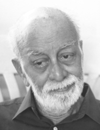By R Akhileshwari, Deccan Herald, 10 Aug., 2006

K G Kannabiran, president of the People's Union of Civil Liberties
(PUCL), has devoted his life to fighting for people's rights. He is
one of the leading lawyers in Andhra Pradesh, and has taken up the
legal cudgels against the state's attempts to suppress the people's
movements and curtail the people's right to protest. He has been
involved with the Andhra Pradesh Civil Liberties Committee since its
inception 38 years ago and has fought every major legal case involving
revolutionary poets, balladeers, fighters and sympathisers.
He was the moving spirit behind the setting up of the Concerned Citizens'
Committee that facilitated peace talks in 2004 between the government
and People's War Naxalites, as the Maoists were known then. Deccan
Herald spoke to Kannabiran (72) on the fallout of the war being waged
by the Andhra Pradesh government against Maoists and the consequent
mowing down of eight Maoists, including the state committee secretary
of CPI (Maoist) Madhav in the Nallamalla forests on July 23.
What do you make of the Nallamalla encounter?
For the last 35-40 years, the government has been gunning down people
and terming them encounters. This episode is nothing new. It was
started by (former Chief Minister Jalagam) Vengal Rao – the Naxalite
problem was handed over to the police department. Today, the police
department is not neutral. It has a vision which is anti-Naxalite.
This is no different from Hitler's strategy of converting the police
department into a political organ that hounded Jews. This policy is
despicable and dangerous to democracy and human rights.
How have the AP police silenced people's protests?
The political character that the police department has assumed has
reached the point that vigilante groups have been engaged to kill
Naxalite supporters. They use indigenous weapons like the axe and
sword and leave the weapon on the body (apparently as a warning to
others). It's a deliberate act to terrorise people and silence them.
After the murder of (rights activist) Kanakachary in Mahbubnagar (two
years ago) the superintendent of police told the APCLC's vice
–president Hargopal to close down the Karuvu Vyatireka Samiti. It's
very unfortunate that an anti-hunger, anti-drought group was closed
down. Everybody has lost the courage to protest.
Do you think the peace talks of 2004 between the Naxals and Congress
government worked to the disadvantage of Maoists?
The Congress cleverly used the promise of talks with Naxalites by
incorporating it in its manifestos to come to power. The people wanted
peace – this issue was one of the factors for the TDP's defeat. After
the elections, the Congress, which is experienced in skulduggery, used
the period of peace talks to go over Nallamalla forests (their
hideout) with a toothcomb. The government behaved in a dastardly
manner. Right from the beginning, they wanted to take advantage of the
`peace time'.
On hindsight, do you now think it was not the right thing to do to
pursue peace talks?
No, not really, but we unwittingly played a treacherous role in
believing the bonafides of the government. While the Naxalites were
here (in Hyderabad) for the talks, the (anti-Naxal police force)
Greyhounds went to Nallamalla, spotted the hideouts and gained a
strategic advantage. What is objectionable is that this happened after
the Naxals were involved in the peace talks.
Was nothing achieved by the talks?
I won't say we achieved nothing. It was the people's pressure that
brought the government and Maoists to the table to talk peace. That
was a victory for democracy.
Did the Maoists really believe they would achieve anything through talks?
The Maoists honestly thought something would come out of the talks.
They hoped to achieve at least land distribution. It they had achieved
this then they would have achieved one of their main objectives
without firing even one shot.
Will the elimination of Maoist leaders hit the movement?
No, the movement won't be affected. This has gone on for 38 years.
There will always be people driven by a desire for a better life,
better society and a better country through alternative methods
because mainstream politics is all rubbish. Nobody can call this
government, either at the State or the Centre, a democracy. It is an
anarchic situation.
Were you hopeful after the peace talks?
Somewhere along the way, I felt once we initiated a democratic process
it might have a multiplier effect. And the eight months of peace talks
were the most peaceful period in the state. The peace talks gave me
hope that we would be able to have genuine democracy, improve
conditions of the people and fight against globalisation.
Do you think of late the various people's movements have been weakened
in some way?
After economic reforms and globalisation, the human rights movement
has split… some think globalisation is good, some think it isn't. The
movement has not only stagnated but also become fragmented like child
rights, dalit rights, women rights and so on. Human rights is not
perceived as an indivisible whole. All these issues are not linked
holistically with the human rights structure.
Then should all the issues be brought under one umbrella?
Each issue has become something like property. The competitive ethics
permeate the civil society movements. Each is confined to its own area
and to its own fights. They should remember that a fragment cannot
inspire democratic culture. Besides, the government has incorporated
NGOs under various guises which is part of a strategy to silence
people's voices and concerns.
No comments:
Post a Comment